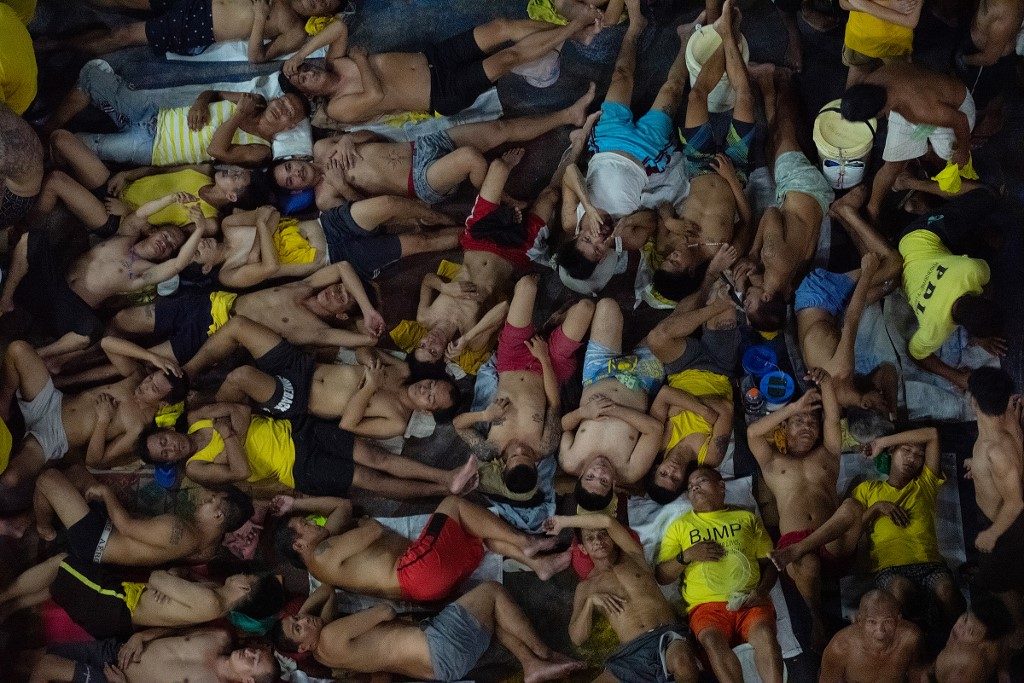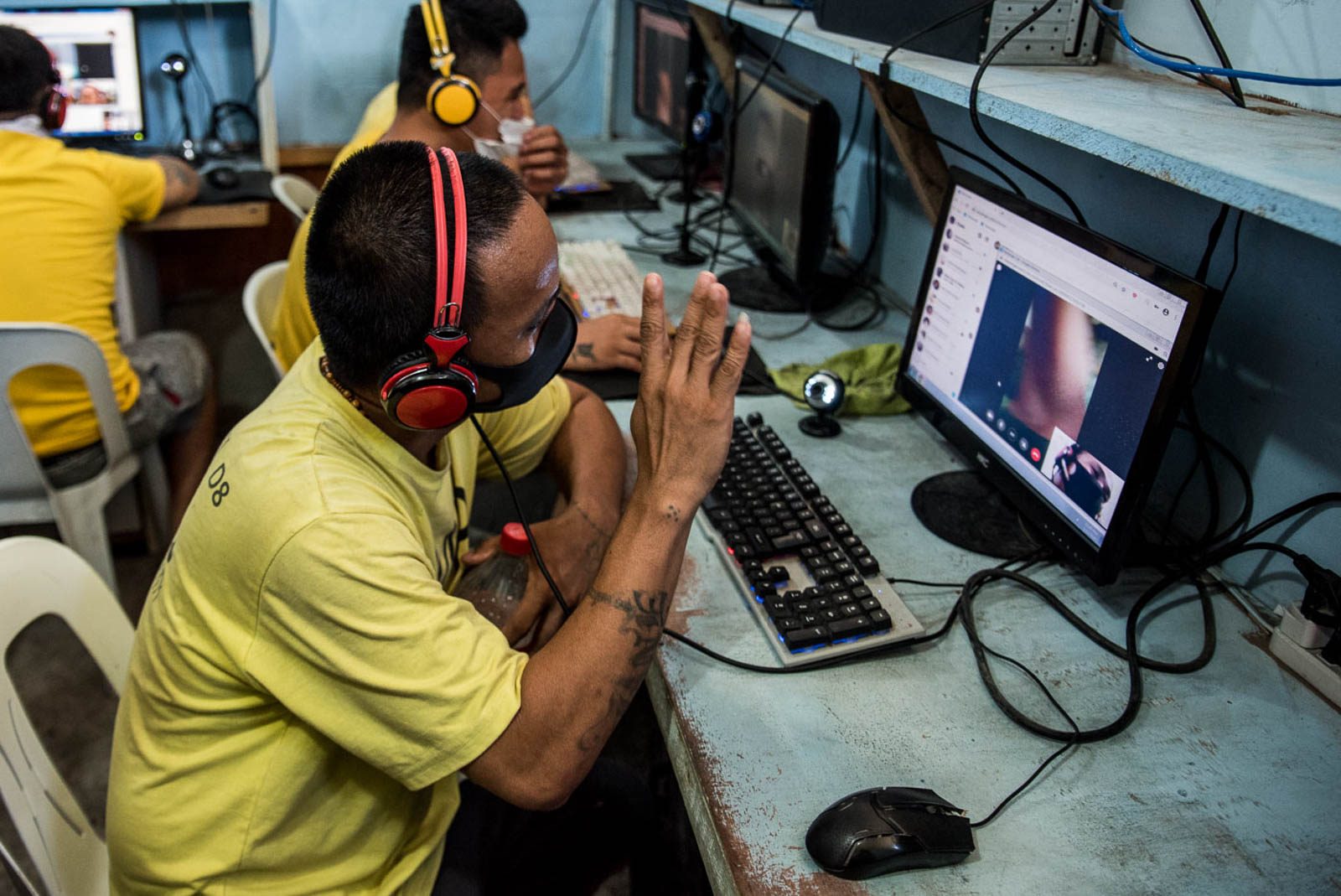SUMMARY
This is AI generated summarization, which may have errors. For context, always refer to the full article.

MANILA, Philippines (UPDATED) – Human rights groups said they fear it’s just a matter of time before the novel coronavirus affects jails in the Philippines – if it hasn’t yet afflicted prisoners.
Various groups and individuals are joining the call for the early release of some persons deprived of liberty (PDLs), including low-level and non-violent offenders, old prisoners, and those with health conditions that are at risk if exposed to the virus.
But government officials have rejected these proposals, saying that PDLs are safer inside – even if other countries, such as Indonesia, already released thousands of its prisoners to ease pressure on the system amid the pandemic.
Human Rights Watch on Tuesday, April 7, warned that the situation could get worse for the Philippine prison system, leading to “catastrophic public health problems,” if the government does not act fast.
“Failure to act now could result in a serious outbreak in the country’s jails and prisons, threatening the lives of prisoners whose health the authorities have a duty to protect,” HRW deputy Asia director Phil Robertson said.
“For humanitarian reasons and to stop COVID-19 from spreading, authorities need to get ahead of this situation by undertaking early releases and making sure the country’s detention facilities are equipped to take on the coronavirus,” he added.
KAPATID, a group composed of families of political prisoners, reiterated its call for their release, urging government authorities not to wait until worse things happen to PDLs.
“Given the high congestion and mortality rates of the prison system, should the national government wait before the deadly COVID-19 unleashes even more catastrophic consequences inside Philippine jails?” Fides Lim, the group’s spokesperson, said in her latest letter to government agencies.
Overcrowded system
The Philippines’ prison system has long been marred with problems concerning massive congestion.
Bureau of Corrections (BuCor) facilities, which house convicted people, have a 310% congestion rate or 49,114 PDLs in its 7 facilities that only have a total maximum capacity of 11,981.
Data from the Bureau of Jail Management and Penology (BJMP), which oversees jails where those going through or awaiting trials are detained, shows that 380 out of its 467 jails were congested as of October 2019.
This poses a 450% congestion rate, which translates to 6 detainees occupying space only meant for one – far too crowded and beyond the recommended space for “physical distancing” as urged by the World Health Organization against the coronavirus.
Quezon City Jail, for example, has 3,821 PDLs. One of its paralegals tested positive for the virus, but the BJMP said she has reported to work since the jail’s lockdown on March 21. It is also located in a city with at least 583 coronavirus cases, one of the highest number in Metro Manila.
Government officials said stringent measures are already in place inside the Philippine prison system against the virus, including routine disinfection and close inspection of personnel.
Interior Secretary Eduardo Año even said that a prison is the “safest place right now” for PDLs, with the suspension of jail visits and implementation of electronic dalaw (visits) or e-dalaw.
“They will be more vulnerable and exposed to the virus if they are released at this time,” he said in a statement.

In an open letter to BuCor, prison reform expert Raymund Narag said he believes that the bureau is doing their best to prevent COVID-19 infections, but warned that even well-managed prisons in other countries have reported cases of the virus.
Once infections start…
“Experiences from other countries show that prisons and jails, even if well managed and well resourced, are not immune to the infections of COVID19,” he said. “It is just a matter of time that any of our prison facilities will be infected and once infections start, it will be catastrophic for PDLs and personnel alike.”
Narag and prison reform expert Clarke Jones, in a position paper, said the BJMP and the Public Attorney’s Office can jumpstart the process by writing to to the Supreme Court detailing the situation.
A list of PDLs who are “low-risk, first-time, and non-violent” can also be submitted to judges who, in return, can release them “on their own self-recognizance” – on the condition that they appear on court-appointed dates.
“By keeping them all in jail at the moment places them in a susceptible condition to acquire the coronavirus,” they said. “In our over-congested jail, this will be tantamount to a death sentence.”
Human rights lawyer Tony La Viña, meanwhile, said that the government is wrong – even if it means well in believing that continued detention is the best option for both the public and PDLs.
He told Rappler that the government should listen to other groups, including the United Nations, which stated that “all jails and detention centers are ticking disease bombs that can explode anytime.”
“Our jails and detention centers are overpopulated, inhumane, and we know that, even in normal times, it hosts all sorts of germs and viruses,” La Viña said. “Covid-19 could hit them anytime and there will be hell to pray for that.”
As of Tuesday, April 7, the Philippines has recorded 3,764 confirmed cases of the coronavirus, with 177 deaths and 84 recoveries.
Health experts, meanwhile, have estimated that the number of cases may reach anywhere between 26,000 to 75,000. (READ: Ex-DOH chief: Actual number of virus cases could reach 75,000 in 2 weeks)
Other countries are doing it
Philippine human rights groups are not the only ones calling for early release of PDLs as a bid to protect them from the virus.
Even United Nation (UN) rights chief Michelle Bachelet has sounded alarm over what could happen if governments do not act fast on the welfare of prison population, recommending the release of vulnerable PDLs. (READ: U.N. urges prisoner releases to avoid coronavirus contagion)
Iran is set to “temporarily release” 54,000 PDLs while Indonesia already released 18,000 out of the planned 30,000 from its congested prison system.
Afghanistan also expressed intent to free at least 10,000 prisoners.
Morocco’s King Mohammed VI, meanwhile, pardoned at least 5,000 prisoners and has ordered their release in stages due to “exceptional circumstances linked to the emergency health situation and necessary precautions” because of the virus. – Rappler.com
Add a comment
How does this make you feel?
There are no comments yet. Add your comment to start the conversation.